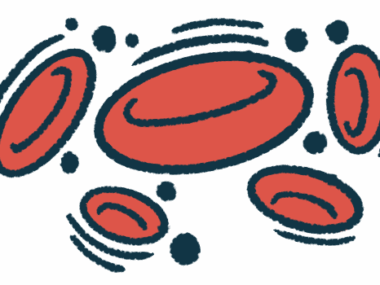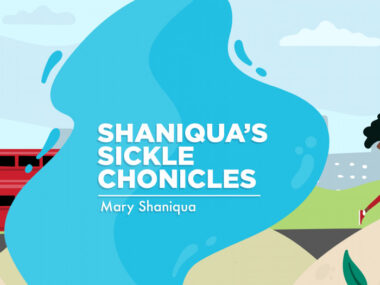Cheek Week seeks to enlist more diverse donors in stem cell registry
Black, African Americans more likely to find match from same background
Written by |

The fourth annual Cheek Week, an effort to include more blood stem cell donors in the Be The Match Registry will be featured as part of July’s African American Bone Marrow Awareness Month.
The registry seeks to identify people who might be candidates to donate blood stem cells, which can be used in transplant procedures to treat blood disorders, including sickle cell disease, and several blood cancers.
“This month provides a wonderful opportunity to remind people of the power we have to literally cure someone of cancer,” Erica Jensen, senior vice president of marketing at Be The Match, said in a press release.
Hematopoietic stem cells, or HSCs, are cells in the bone marrow that can give rise to new blood cells. A HSC transplant, wherein a person’s existing stem cells are replaced with those from a healthy donor, is the only available treatment for sickle cell that can fully cure the disease.
To perform such a transplant, however, HSCs must be gathered from a donor with the same profile in certain immune-related markers as the patient. Otherwise, the transplanted HSCs might be mistaken for an infectious threat, causing the immune system to destroy them. The Be The Match Registry aims to connect patients with potential donors who are a match in these markers.
Diverse donors for stem cell transplants needed
The aim of Cheek Week is to get people from diverse ethnic backgrounds, particularly Black and African Americans, to participate in the registry. Since immune-related markers used in transplant matching are inherited and genetic profiles tend to vary based on ancestry, people from Black or African backgrounds are generally most likely to find a match with others of the same genetic background.
Sickle cell predominantly impacts people in these communities, but Black and African Americans are less likely than white people to find a match, in large part due to a lack of donors. In fact, the odds of finding a match are currently about 79% for white patients and just 29% for Black or African American patients.
“Every patient deserves an equal chance of finding a matching donor on the Be The Match Registry. However, many people don’t know that ethnicity is a factor in finding a matching donor and more Black donors are needed to help save Black patients,” Jensen said.
Justice Brooks, a 20-year-old sickle cell patient from Atlanta who’s been working as an advocate for the registry knows firsthand the difference that diversity can make.
“We are making progress in our efforts to diversify the registry,” Brooks said. “When I first began searching for a donor, I only had a single potential match. I experienced serious illness during preparation for transplant that required I postpone this treatment option. I recently searched the registry again to determine if a match was available and we discovered there are now seven potential matches, which means more Black and African donors are signing up, and this gives me so much hope.”
As part of Cheek Week, a drive-thru event will take place at Antioch AME Church in Stone Mountain, Georgia, Friday from 10 a.m. to 1 p.m. Children’s Healthcare of Atlanta hosted a number of in-person events this week.
Adults ages 18-40 can register online to be included in the registry. Potential donors must provide a cheek swab, which is used to assess their genetic profile and look for matches. If one is found, the person will be contacted to set up a donation. Most of the time, the donation process involves a nonsurgical procedure that’s similar to donating blood.






